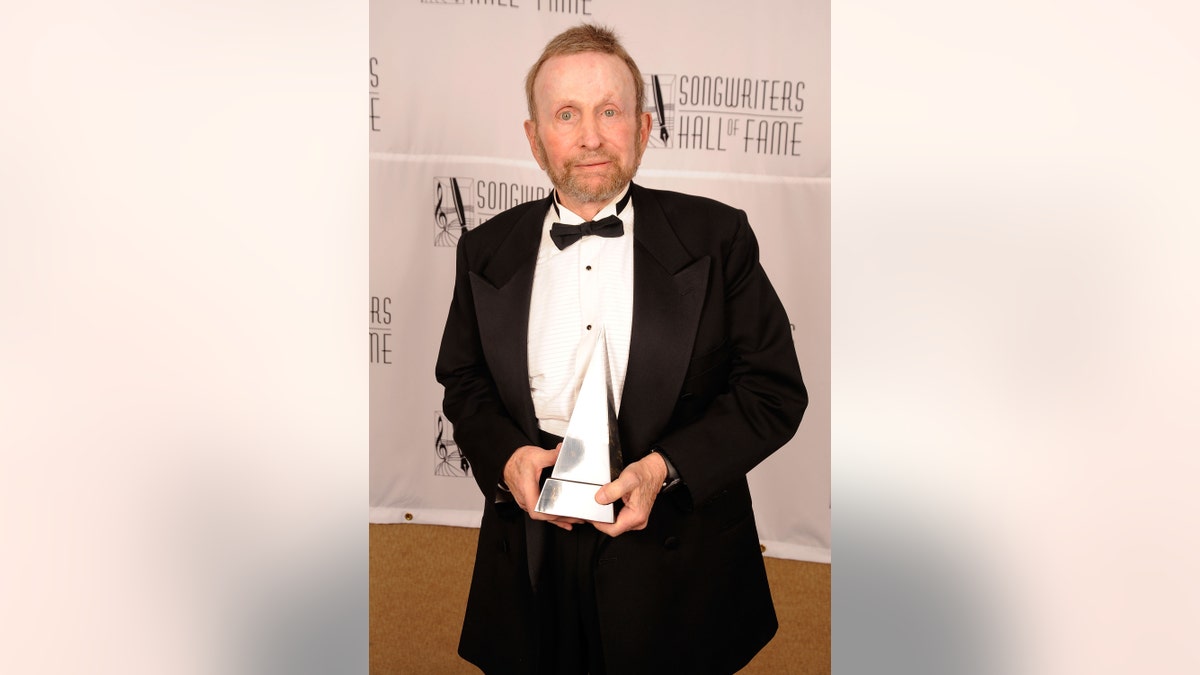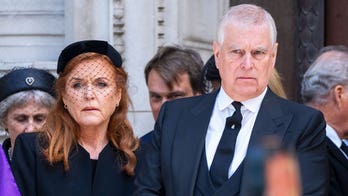Fox News Flash top entertainment headlines for June 30
Fox News Flash top entertainment and celebrity headlines are here. Check out what's clicking today in entertainment.
Johnny Mandel, the Oscar- and Grammy-winning songwriter of “The Shadow of Your Smile,” “Emily” and the theme from “M*A*S*H,” has died. He was 94.
“I was so sad to learn that a hero of mine, Johnny Mandel, passed away,” wrote Michael Buble on Twitter. “He was a genius and one of my favorite writers, arrangers, and personalities. He was a beast.”
“A dear friend and extraordinary composer arranger and all-around brilliant talent, Johnny Mandel, just passed away,” wrote Michael Feinstein on Facebook. “The world will never be quite the same without his humor, wit and wry view of life and the human condition. He was truly beyond compare, and nobody could write or arrange the way he did. Lord will we miss him. Let’s celebrate him with his music! He would like that.”
CINEWORLD DELAYS REOPENING U.K. CINEMAS, REGAL THEATERS FOLLOWING ‘TENET’ DATE SHIFT

Honoree Johnny Mandel attends the 41st Annual Songwriters Hall of Fame Ceremony at The New York Marriott Marquis on June 17, 2010 in New York City. (Getty)
Mandel was considered one of the finest arrangers of the second half of the 20th century, providing elegant orchestral charts for a wide range of vocalists including Frank Sinatra, Peggy Lee, Barbra Streisand, Michael Jackson, Tony Bennett, Natalie Cole and Hoagy Carmichael.
Mandel scored more than 30 films during his Hollywood career, including the 1960s films “The Americanization of Emily” (from which the hit song “Emily” emerged), “The Sandpiper” (which contained “The Shadow of Your Smile,” earning an Oscar and a Grammy for Song of the Year along with lyricist Paul Francis Webster), “Harper,” “An American Dream” (which included the Oscar-nominated song “A Time for Love”), “The Russians Are Coming, the Russians Are Coming” and “Point Blank.”
In 1970 he scored “M*A*S*H,” which required a song that he cobbled together from a lyric by director Robert Altman’s 15-year-old son Michael. That tune, “Suicide Is Painless,” later became, in instrumental form, the theme for the long-running TV series and one of his most famous works.
HENRY CAVILL HAS A FEW WORDS ABOUT THE SNYDER CUT OF ‘JUSTICE LEAGUE’
His later film scores included “Summer Wishes, Winter Dreams,” “The Last Detail,” “The Sailor Who Fell From Grace With the Sea,” “Agatha” (including the song “Close Enough for Love,” now a standard), “Being There,” “Caddyshack,” “Deathtrap” and “The Verdict.”
In addition to the theme from “M*A*S*H,” he composed the themes for TV’s “Banyon” and “Too Close for Comfort” as well as scores for such series as “Markham” and “Chrysler Theatre.” He earned Emmy nominations for his 1980s TV-movie scores “A Letter to Three Wives,” “LBJ: The Early Years” and “Foxfire.” His other telefilms as composer included “Evita Peron,” “Christmas Eve” and “Kaleidoscope.”
Mandel was born in New York City. He played the trumpet as a young teen and, fascinated by the different sounds of the big bands he admired in the late ’30s and early ’40s, he began studying arranging with top arranger Van Alexander (who had written “A-Tisket, A-Tasket” for Ella Fitzgerald). He always credited Alexander for launching his career as an arranger.
As a trumpeter, he played for Joe Venuti’s band; after switching instruments to trombone, he played in the swing bands of Henry Jerome, Boyd Raeburn, Jimmy Dorsey, Buddy Rich, Alvino Rey and Count Basie during the late 1940s and early ’50s.
‘HAMILTON’ ON DISNEY PLUS: FILM REVIEW
He finished his musical education at the Manhattan School of Music and Juilliard in New York, then began arranging for other bands including those of Woody Herman, Artie Shaw, Elliot Lawrence and Chet Baker.
During the early 1950s, Mandel was one of the arrangers for Sid Caesar’s live, New York-based 90-minute variety TV series “Your Show of Shows.” Mandel moved to California in the late 1950s and began composing for films, including a landmark jazz score for “I Want to Live,” starring Susan Hayward, in 1958.
He received the Golden Score Award from the American Society of Music Arrangers and Composers in 1996; was inducted into the Songwriters Hall of Fame in 2010; and named a Jazz Master by the National Endowment for the Arts in 2011.
His five Grammys included two for “The Sandpiper” (1965, song and score) and arranging honors for albums by Quincy Jones (1981), Natalie Cole (“Unforgettable,” 1991) and Shirley Horn (1992).
Throughout his film-scoring period (1958-1990) and beyond, Mandel continued to arrange for leading artists including Mel Torme, Anita O’Day, Nancy Wilson, Diana Krall, Michael Bolton, Barry Manilow and Manhattan Transfer. He also served on ASCAP’s board of directors for many years.
He is survived by his daughter, Marissa.















































